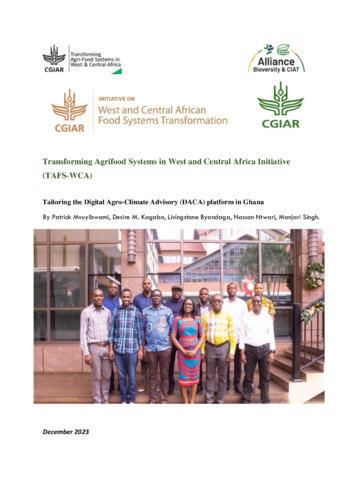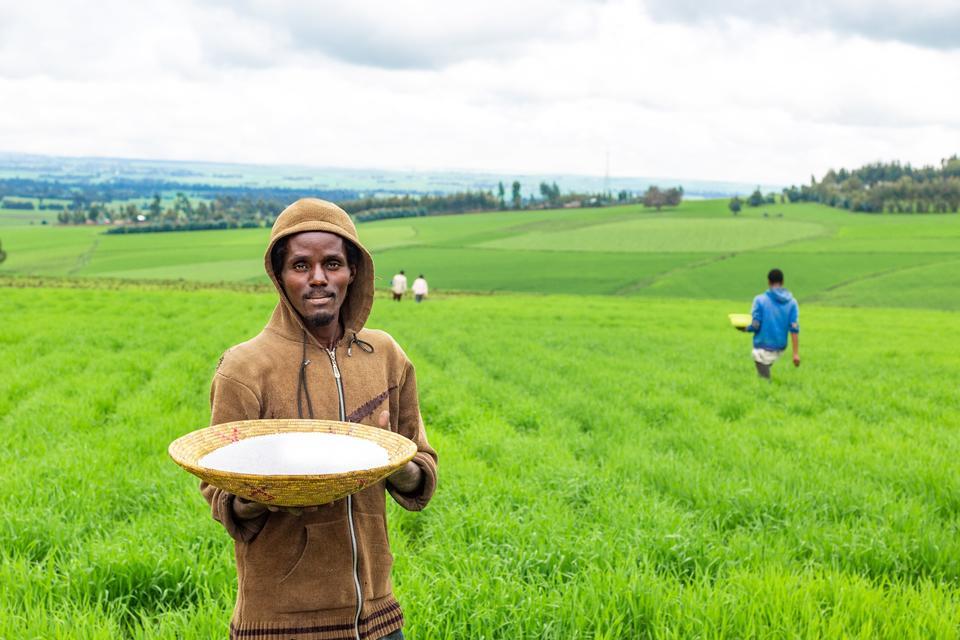Blog Empowering Ghana's Agriculture: Customizing Digital Agro-Climate Advisories to Tackle Climate Change Challenges
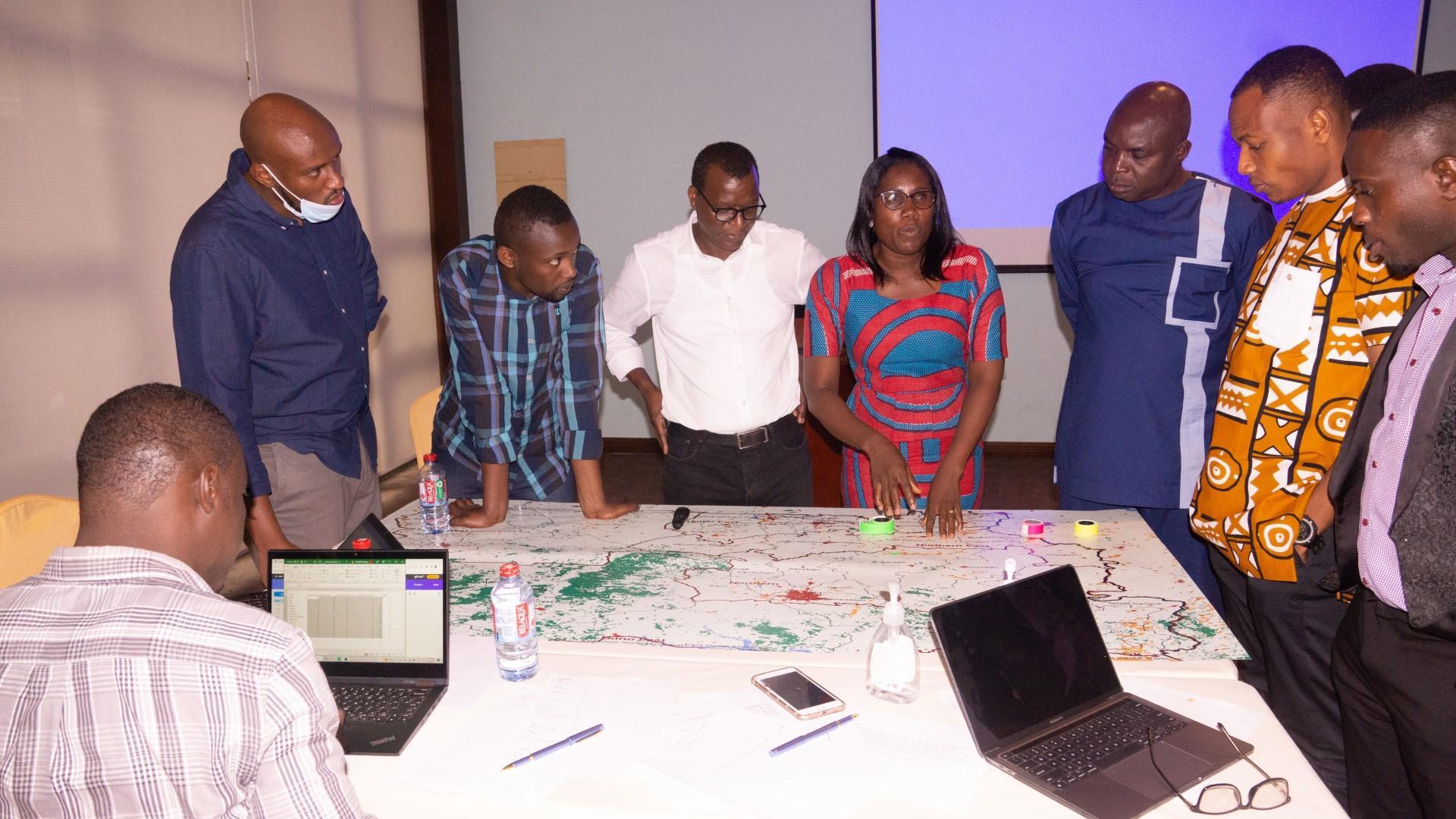
Climate change, land degradation, and invasive pests significantly risk Ghana's food production. However, things may change, following a workshop conducted in December 2022 by the Alliance of Bioversity International and CIAT through Transforming Agri-Food Systems in West and Central Africa (TAFS-WCA) CGIAR initiative.
By: Patrick Mvuyibwami, Desire Kagabo, Livingstone Byandaga, Nasson Ntwari, Manjari Singh
The workshop convened key stakeholders in Ghana's agricultural sector, representing diverse institutions and key stakeholders across the country's major agro-ecological zones: Savannah, Transitional, and Forest. The objective of this workshop was to map and profile major crops with their descriptors and fertilizers recommendations for integration into Digital AgroClimate Advisory (DACA). This mobile-based platform seeks to provide location-specific agro-climate advisories, offering tailored information to agricultural value chain actors. The workshop successfully mapped major crops and created a comprehensive database for specific agro-ecological zones. This information will enhance DACA, promoting sustainability and resilience in Ghana's agriculture. The report underscores the need for interdisciplinary collaboration and technology-driven solutions to combat climate challenges in agriculture.
Climate change continues to be the main threat to Africa’s agriculture; hence the sector has not been able to live up to its huge mission of feeding the growing population, a situation that is worsened by other challenges such as land degradation, pests and diseases, and inadequate infrastructure leading to post-harvest losses. However, things may change for Ghana, following a workshop conducted in December 2022 by the Alliance of Bioversity International and CIAT. This workshop served as a collaborative platform, bringing together key stakeholders from Ghana's agricultural sector, including research institutes, the Ghana Atomic Energy Commission, and the University for Development Studies. Participants in attendance represented the three major agro-ecological zones: The Savannah zone, Transitional zone and the Forest zone.
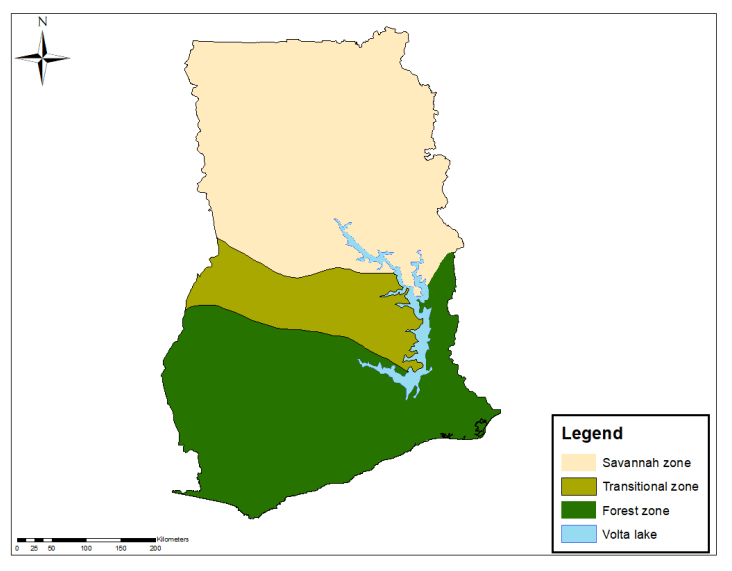
Figure 1: Map of Ghana major agro-ecological zones
The primary objective of the workshop was to compile crop characteristics and fertilizer recommendations, with the aim of integrating them into the Digital Agro-Climate Advisory (DACA) platform. This integration seeks to provide location-specific agro-climate advisories, enhancing the effectiveness of agricultural practices in Ghana. DACA is a mobile-based web platform designed to provide location-specific information, services, and products to agricultural value chain actors. It aims to digitally inform decisions by offering tailored agro-climate advisories, including weather, climate, and crop information. The workshop focused on customizing DACA to the Ghanaian context, incorporating details such as days to maturity, water requirement, and fertilizer recommendations. The workshop employed an inclusive and participatory approach, dividing participants into groups based on their agro-ecological zones. Through presentations and group works, participants learned about the TAFS-WCA initiative, the relationship between climate and crop information, and the significance of digital agriculture for climate resilience. The methodology maximized the engagement of all participants and ensured that the data collected were context-specific.
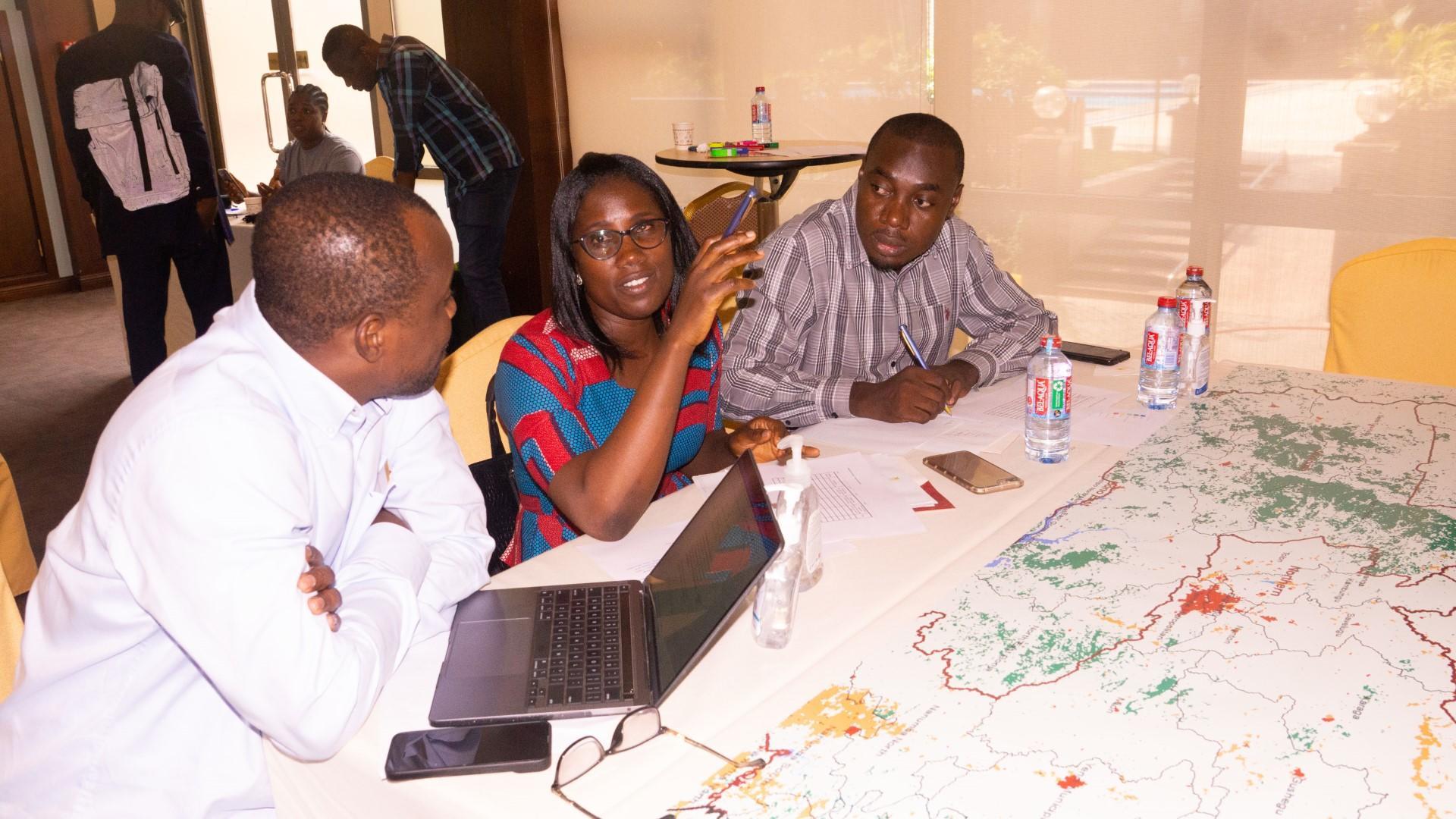
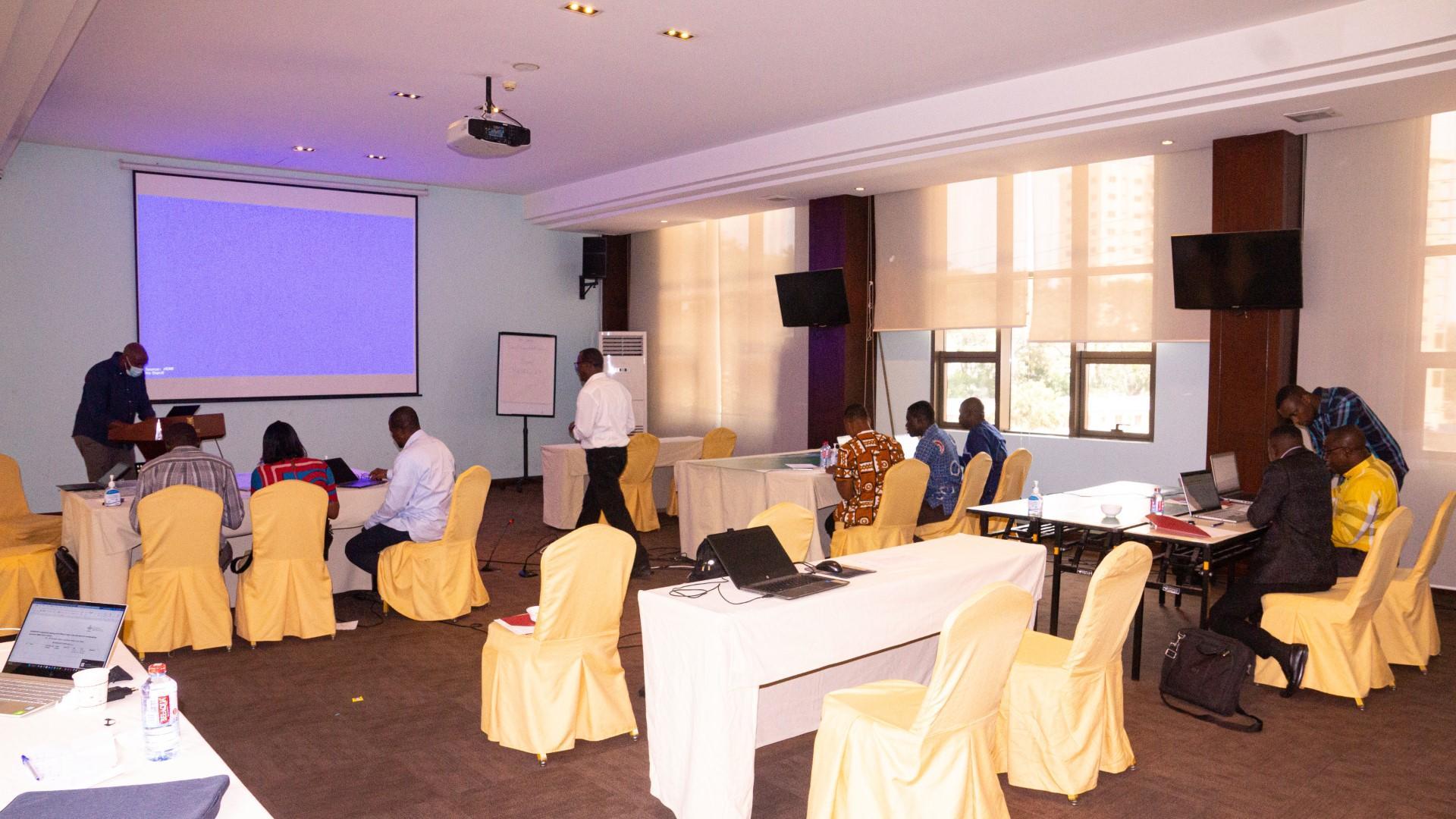
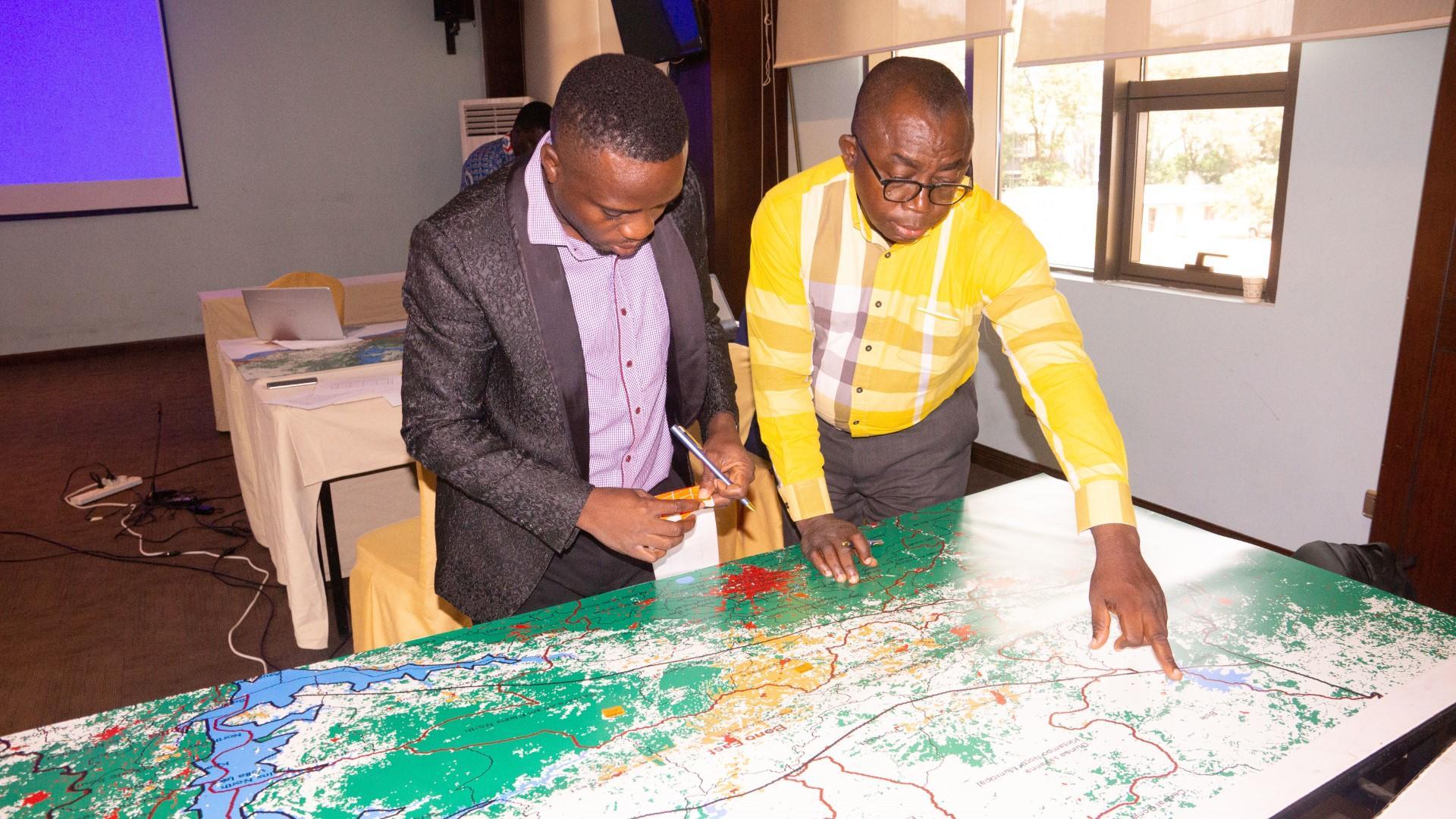
Figure 2: Participants during group works
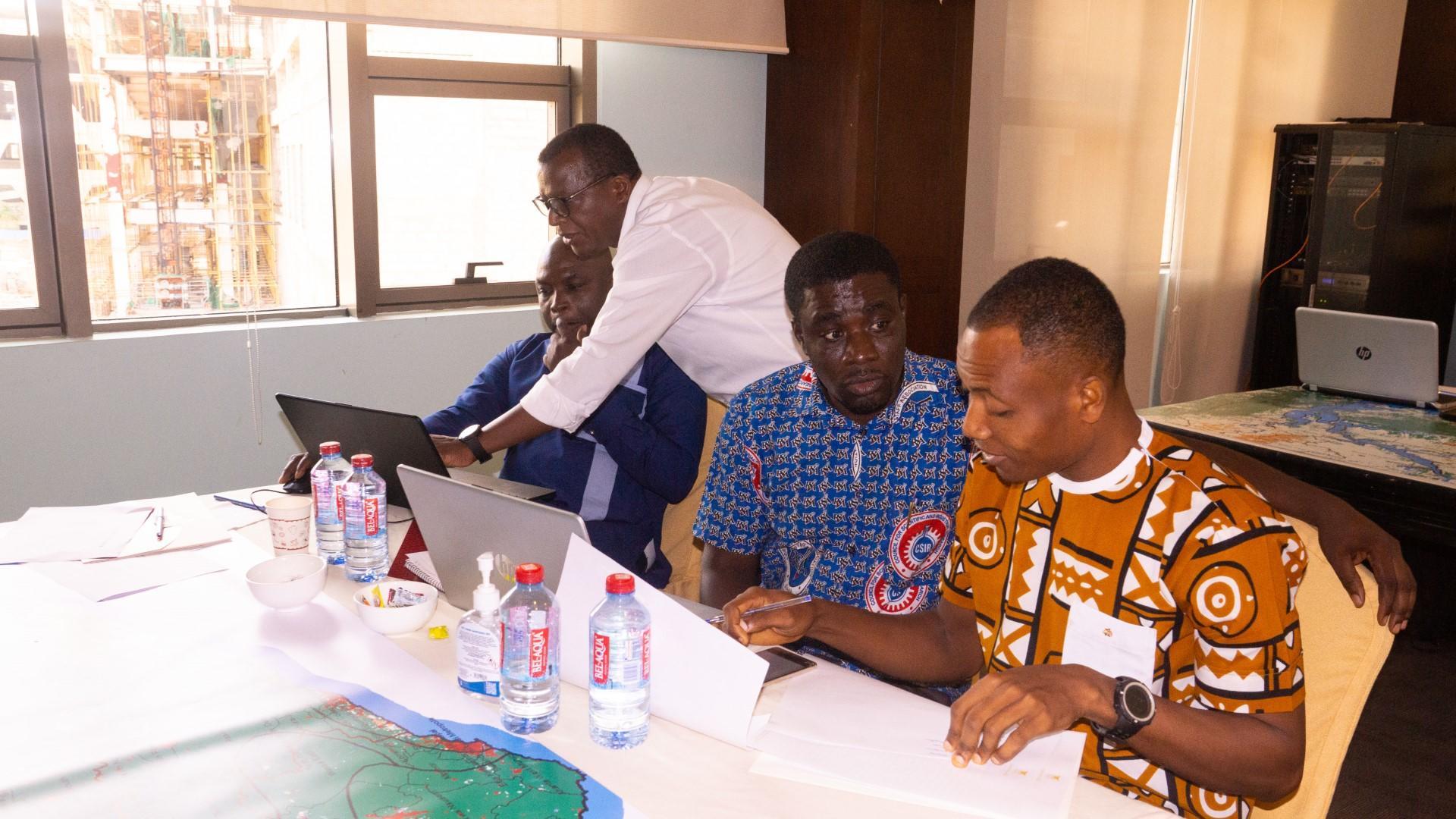
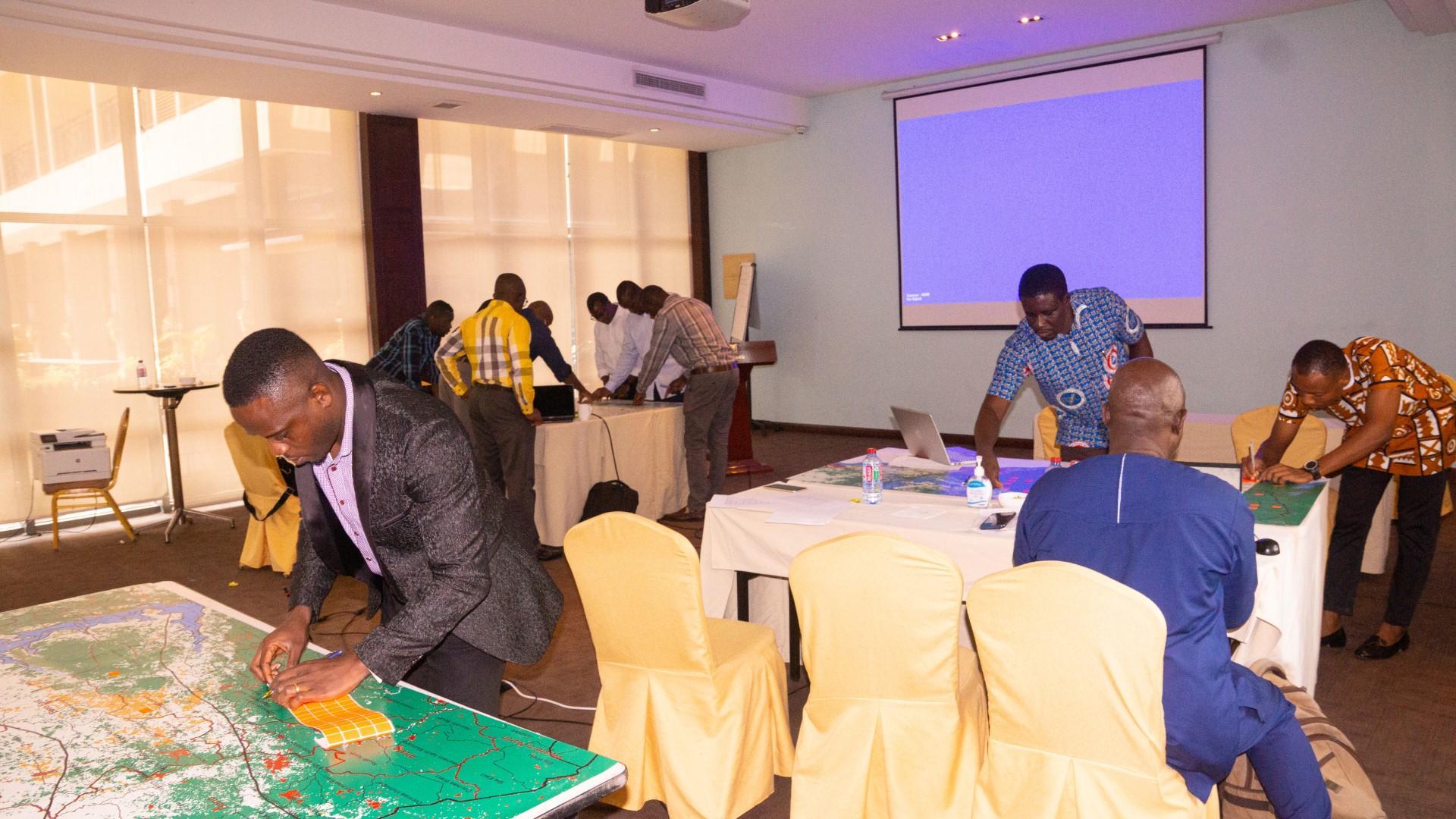
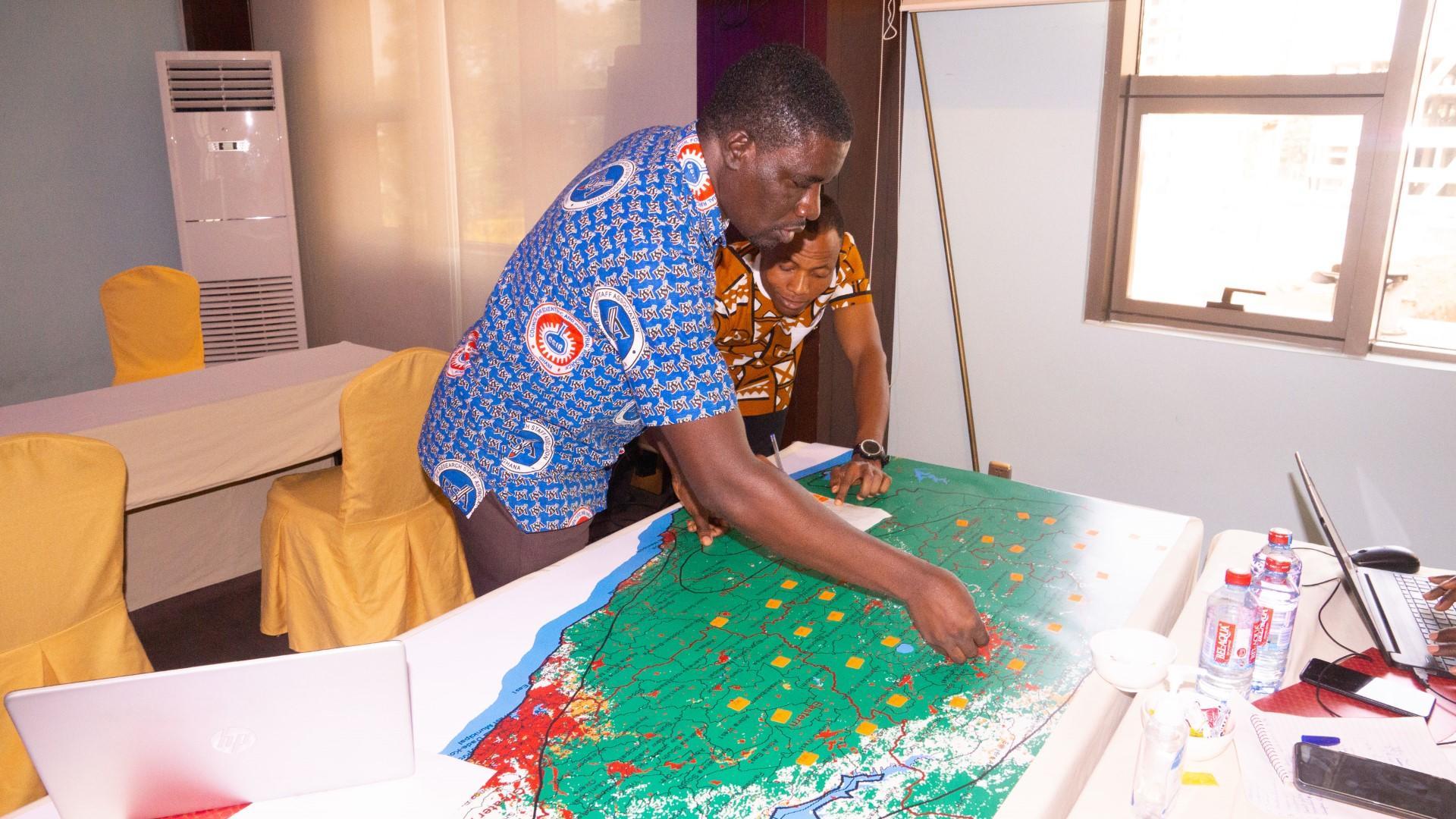
Key Achievements of the Workshop
The workshop yielded several key achievements:
- Development of a template for gathering crop information and fertilizer recommendations in specific locations.
- Mapping of the top 10 major crops per agro-ecological zone.
- Collection of important crop descriptors and fertilizer recommendations for the 10 priority crops in each zone.
- Building a database for crop-specific descriptors for every crop in specific agro-ecological zones.
Customizing DACA platform in Ghana context
The information collected during the workshop is to be integrated into the DACA app, to generate automated location-specific agro-climate advisories. These advisories encompass crop selection, planting schedules, fertilizer recommendations available in the local market, and other climate informed decisions. The DACA platform has the potential to significantly impact farmers in Ghana's three major agro-ecological zones, providing them with actionable insights directly on their smartphones.
While the integration of the collected data into DACA is a crucial step, ensuring its accuracy through validation is equally important. The validation process will guarantee that the agro-climate advisories provided to farmers are reliable and align with their specific needs.
The success of customizing the DACA platform in Ghana underscores the importance of interdisciplinary collaboration. Engaging stakeholders from agriculture, climate science, and technology ensures that the information delivered is finely tuned to meet the unique needs of local farmers, fostering trust and sustainability.
Lessons Learned and conclusion
This initiative highlights the pivotal role of technology-driven, location-specific agro-climate advisories in addressing climate change challenges. The lessons learned emphasize the importance of collaborative, customized, and technology-centric strategies to empower farmers and enhance agricultural resilience. The participants, representing diverse institutions, expressed their enthusiasm for actively contributing to the DACA app's implementation. As Ghana moves forward with this transformative initiative, the tailored agro-climate advisories provided by DACA are poised to make a significant impact on the country's agricultural sector.
The Team

Mvuyibwami Patrick
Senior Research Associate
Livingstone Byandaga
Research Specialist

